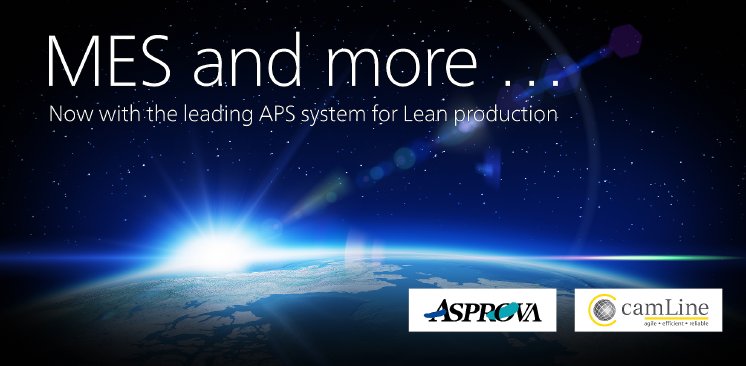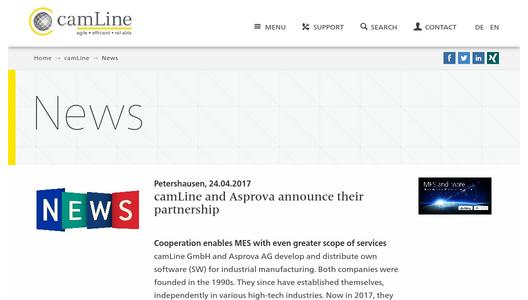For their future collaboration, both software companies share several conditions. Their products are used worldwide, especially in the markets of Asia, Europe, and North America. Both focus on manufacturing with particular challenges regarding production organization and demanding business logic. Included are very flexible concepts for the detailed mapping of all production processes. Furthermore, there are promising capabilities for the integration of entire supply chains.
Cooperation enables MES with even greater scope of services
Through the collaboration, a sophisticated Manufacturing Execution System (MES) is being presented on the market that uniquely covers the three fundamental pillars of a MES with respect to ISA-95 standard:
- Definition of products and manufacturing processes
- Production scheduling/planning
- Manufacturing execution
With regard to the key initiative Industry 4.0, complex, flexible, communication-capable cyber-physical systems (CPS) are increasingly being used in the shop floors as production equipment. They enable the intensive exchange of information between themselves and the superordinate levels organizing the productions. These layers manage the orchestration of all manufacturing operations. They are responsible for the economic manufacturing of industrial products.
As a result of the intensified networking, accordingly the need for effective SW-based infrastructure solutions is increasing. Manufacturing SW can make its strengths even more effective in view of the quantitatively and qualitatively improved provision of information made available from the shop floors. Mr. Bernhard Jofer, VP of camLine GmbH, confirms: "We recognize a growing demand for MES solutions with integrated advanced scheduling. The capabilities of Asprova APS for advanced scheduling address also manufacturers who already use an ERP, i.e. SAP, for their planning. The external scheduling module perfectly complements our in-house modules of the LineWorks-Suite." The easy integration of the systems, the extremely powerful scheduling functions, and the very fast execution speeds allow integrating entire supply chains with powerful solutions.
Adaptable and scalable through a modular approach
camLine's MES solutions are based on a compact and modular approach. The core modules focus on:
- Quality assurance
- Process integrity
- Manufacturing execution
- Equipment efficiency (OEE)
The execution component provides seamless traceability with tracking and tracing. It also allows the organization and provision of data by defining products and production processes. Due to the modular approach, the granular mapping of vertical integration is possible at high data throughput with real-time applications. As high-availability systems, they are designed to be used 24/7 allowing the collection of current data in large-scale productions.
Mr. Keiji Fujii, Managing Director of the German subsidiary of Asprova AG, says: "The simple integration of our APS SW solution into the existing individual IT structure is a requirement that we have placed great emphasis on from the outset. With camLine's MES solutions, we get production data almost in real-time, in high quality, and in a degree of detail exactly as required by Asprova for advanced planning."
Multi-level optimization to minimize throughput times
Asprova APS is used by numerous well-known Japanese top-lean companies (market share: 59%). The standard software meets a wide range of specific requirements for the advanced scheduling of discrete and process-oriented production. All necessary resources (with their individual specifications and restrictions), as well as their limited capacities and availability, are incorporated into the calculations. Material availability is always considered. Thanks to ingenious, individually adjustable multi-level planning logic, optimal sequence planning is achieved. Results with Asprova:
- Minimized throughput times
- Increase in delivery reliability
- Optimized sequence planning with respect to set-up times
- Reduction and optimization of inventory
- High flexibility with regard to changes


